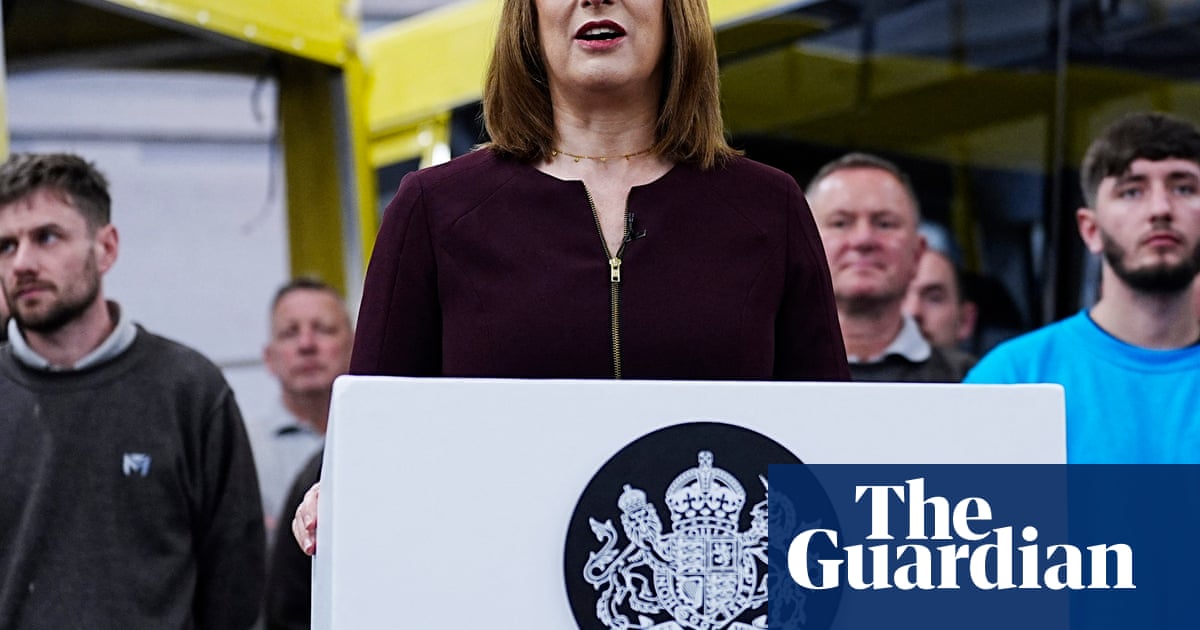Rachel Reeves was clearly keen to get back in the political driver’s seat on Wednesday, as she promised £15.6bn in transport investment at a Rochdale bus factory.
It was a down payment on the £113bn in additional investment, over and above Tory plans, that she will lay out in next week’s spending review.
It came in a speech that was heavily focused on stimulating economies outside London and the south-east to tackle the longstanding issue in the UK of “growth created in too few places, and too few people feeling the benefits”.
Reeves promised to publish an overhaul of the Treasury’s “green book” next week – the rules that govern how public investment plans are judged. This is expected to help tip the balance of the argument in future against endlessly shovelling more resources into the capital and the south.
She also revived her own notion of “securonomics” (government policy aimed at protecting households from economic shocks) by shoring up national resilience – including most recently, she said, intervening to take control of British Steel.
This felt like a shift of emphasis from Reeves’s “further and faster” growth speech back in January. She did highlight the importance of investment then, but also leaned much more heavily on deregulation – including rolling back environmental protections – and focused on the distinctly southern Oxford-Cambridge arc.
Since then,Labourhas suffered a bruising set of local election results, leaking support to Reform in many former industrial constituencies it sorely wants to hold on to at the next general election.
Reeves wants to show Labour MPs she has a theory of growth that embraces these areas and is willing to take on Treasury orthodoxy to do so, hence that radical rewrite of the green book.
She is also keen not to be remembered solely for the typical chancellor’s role of holding the purse strings. “I didn’t come into politics because I care passionately about fiscal rules,” Reeves told her audience of bored-looking bus workers (a contrast with Tory predecessor Philip Hammond, who when asked to give one word to describe himself said “fiscal”).
Yet the most headline-grabbing aspect of the speech – the confirmation that the winter fuel allowance cut will be partly reversed – underlined what scant hope Reeves has of not spending the next few months before the autumn budget answering tricky questions about tax and spend.
Given the cut was justified as an urgent money-raising measure to help fill what Reeves identified as a £22bn black hole, she will have to explain how the gap will now be filled (reversing the cut in full would cost £1.5bn a year).
The Treasury continues to insist that will not happen until the autumn; cue several months of wearying speculation. Meanwhile, Downing Street is fighting a rearguard action from MPs over £5bn of disability benefit cuts and facing pressure over child poverty, which Reeves rightly described as a “moral mission”.
Sign up toFirst Edition
Our morning email breaks down the key stories of the day, telling you what’s happening and why it matters
after newsletter promotion
The chancellor sought to shut down one avenue of speculation in her speech, insisting she has no intention of loosening her fiscal rules, in particular the stricture that day-to-day spending must be matched with taxation.
Critics have attacked this rule as too tight, given the cash-starved state of public services and myriad other challenges faced by the UK, but Reeves insisted it was “the sound economic choice”, as well as being fair to future generations.
Reeves also insisted the rules were not “self-imposed” but just reflected the economic reality that the UK cannot go on borrowing endlessly without a Liz Truss-style market crisis.
And in a speech that seemed deliberately more personal than the tarmac-and-deregulation mood of January, Reeves acknowledged that she has had to say no to some things she would have sorely liked to do.
Yet the inevitable headlines next week about tight departmental spending settlements outside health and defence, alongside the winter fuel debacle, are only likely to amplify the nagging concerns of some Labour backbenchers about what they see as the price of Reeves’s prudence.
